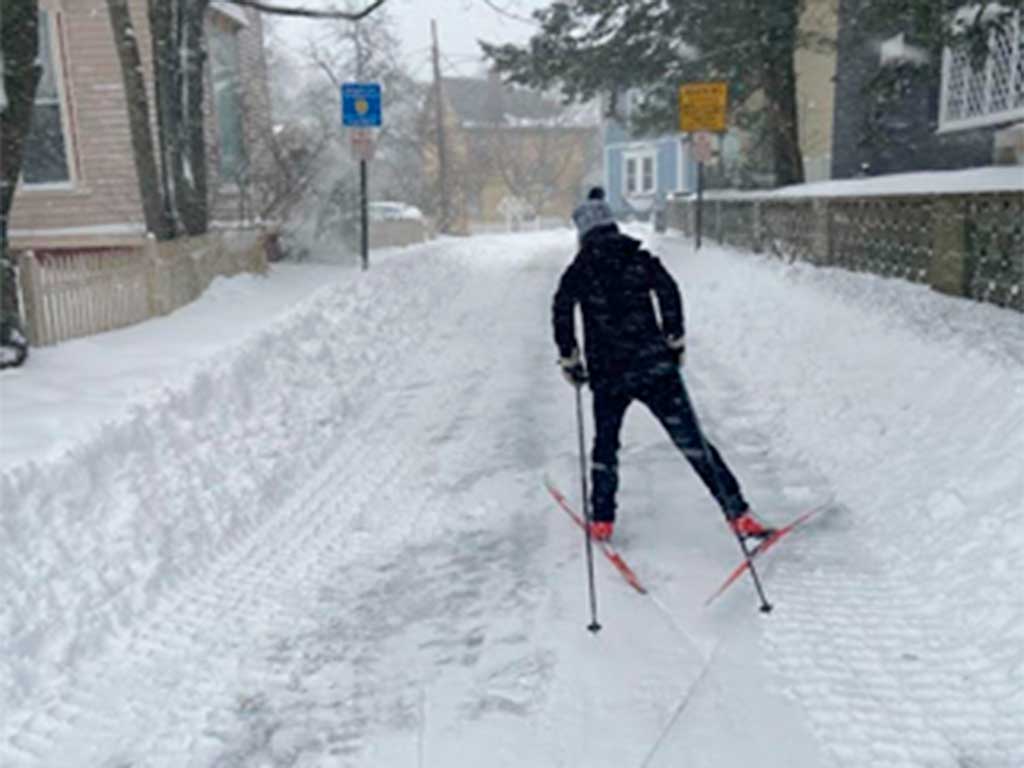Portland Ballot 2023
Urbanist Coalition of Portland Candidate Survey on ReCode Recommendations
The Urbanist Coalition of Portland* is a local group with the goal of making Portland, Maine a more pleasant and safe place to live and work for everyone through creating more middle density housing, walkable mixed-use neighborhoods, transit and cycling infrastructure, and green spaces. The group meets in person monthly and has a robust discussion channel on the Discord app.
Recently, the Urbanist Coalition of Portland made recommendations to the City’s ReCode process to make it easier to build housing throughout the city, and those were used to create this candidate survey for all mayoral and city council candidates. Learn more at https://livableportland.me.
Below, find a table of candidate responses to the Urbanist Coalition candidate survey. Also, we’ve provided more detailed responses from the candidates listed by office starting with the mayoral candidates in alphabetical order.
*UCP was originally called “Livable Portland,” but changed the name to avoid confusion with the Maine DSA’s campaign of the same name.
Portland Mayoral Candidates Respond to UCP Candidate Survey
Pious Ali

- Declined to answer UCP candidate survey
- “I have decided not to take a position on your questions because city staff are still working on the Recode process. I will wait to see the final result of their process and then compare it side-by-side with [UCP’s] work. I will then decide where there can be a merger and where I will have to advocate for some of your proposals to be included. I appreciate your work and look forward to working with you to mitigate the housing crisis we have in our city.”
Justin Costa

- Generally does not support UCP proposed ReCode changes
- Wishes to preserve single-family zoning
- “As Mayor, I think it will be my first job to [bring] forward reform packages that are designed to be uncontroversial. So, specifically, I think that we should begin by allowing increased density to housing projects that meet affordability requirements along the Brighton and Forest Ave. corridors… I believe an approach like mine is most likely to minimize neighborhood opposition and minimize concerns that we will accidentally trigger another influx of luxury development.”

Mark Dion
- Does not support UCP’s proposed ReCode changes
- Wishes to preserve neighborhoods and limit zoning reform
- Supportive of permitting and inspection reform to speed up development timelines
- Did not respond to emails asking for details.
Dylan Pugh

- Endorses UCP proposed ReCode changes
- Proposes doubling the amount of deed-restricted affordable units required for new multifamily developments; UCP believes this would drastically disincentivize new construction.
- “The mayor must play a key role in translating technical requirements into a shared vision of a better Portland. I would lead a series of workshops to build grassroots support for these programs, while ensuring that community feedback is prioritized. If we expect things to change we must provide people with a compelling alternative to car travel. I would also advocate for longer [transit] service hours, to accommodate late-shift workers.”
George Rheault (write-in candidate)
- Endorses UCP proposed ReCode changes
- “Portland desperately needs to take responsibility for helping to create our crisis of homelessness and housing affordability. We did this to ourselves and now we must fix it. That is the single biggest reason I decided to run. Portland controls its zoning code and right now that code makes it impossible to build all kinds of housing – low-income, middle-income, and higher-end in much of our city. The status quo City Council has been content to slow-walk zoning reform for YEARS despite more and more poor people getting priced out. It is a moral issue of the highest order.”
Andrew Zarro

- Endorses UCP proposed ReCode changes
- Sets an ambitious target for housing creation of 12,000 new housing units in 10 years
- Proposes rezoning industrial land for mixed-use development, which UCP has endorsed
- Led push for Franklin Street redesign on City Council
- “The City of Portland must lead the way on our housing crisis and the mayor’s job is to be a visionary… but we can’t be visionary if we don’t think big. Recode has been going on for almost a decade, we’ve wasted low interest rates and construction costs… We must democratize our zoning to build affordable housing, combat climate change, produce new revenue streams, reduce property taxes, and increase economic opportunities.”
UCP Candidate Survey – City Council Candidates
At-Large
April Fournier
- Endorses UCP proposed ReCode changes
- Supportive of improvements to bike and pedestrian infrastructure and reducing car-dependence
- Supportive of Franklin Street redesign
- “I have enjoyed my first three years on the council and the relationships I have had the opportunity to build. I think now that we have a lot more permanent staff in our director positions we can really push to get things moving. There also seems to be a lot of agreement on the council to look very closely at ReCode and consider where we can further improve it to accomplish our housing and density goals.”
Bill Linnell
- Endorses UCP proposed ReCode changes
- Supportive of improvements to bike and pedestrian infrastructure and reducing car-dependence
- Supportive of Franklin Street redesign
- “We need to remember that Portland is Maine’s largest city. We are not a suburb… Back in the day, when families were larger, Portland held 10,000 more people than we have now. Greater density… helps avoid urban sprawl, reduces use of fossil fuels, and preserves more greenspace for recreation and farmland. If we relax [zoning] limits, we can gently absorb expected and unavoidable growth… [and make it] possible for workers to live in the City, rather than have to commute.”
District 4
Anna Bullet
- Endorses UCP proposed ReCode changes
- “[I would work to make Portland a better, more livable city] by adding off-peninsula parking with frequent fast, cheap, public transit to downtown, especially during weekends and tourist season; gathering input from public school students of all ages, walkers, bus-riders, and bikers about what feels safe and what feels scary as they navigate their daily commutes… partnering with Maine HUD and Avesta… to build needed low income housing; ensuring the [permitting] process is as accessible and as fast for individual homeowners seeking small renovation permits as it is for large scale developers.
Robert Cady
- Sent a brief note instead of responding to UCP survey
- Supportive of gentle density
- Wishes to respect existing residents and current neighborhood characteristics
- “I’m in favor of allowing increased gentle density in Portland, with increased building for the lot size. I am also in favor of improving mass transit (bus), and improving pedestrian and bike access and safety. I am a proponent of local, small businesses, and would just want to be respectful of existing residents and current neighborhood characteristics.“
District 5
Matthew Buonopane
- Supportive of some of UCP ReCode recommendations, but does not support allowing multi-family housing citywide.
- Does not support increasing the funding of GPMetro to provide improved bus service
- Supportive of Franklin St redesign but undecided on funding it
- “…New multi-family development should be along corridors such as Deering, Forest, and Congress rather than set back into the neighborhoods behind these corridors. I would like to see some restrictions around construction of ADUs with respect to their setback from neighboring houses and certain amenities (such as swimming pools, for example). …I support allowing modest height increases, reducing lot size minimums, and building on bigger portions of each lot.”
Kate Sykes
- Endorses UCP proposed ReCode changes
- Top priority is to have the city act as a Social Housing Developer that can bond, invest directly in and build community-owned, mixed income housing democratically controlled by residents, modeled after Montgomery County, MD; Seattle, WA; and Vienna, Austria.
- Wants to create workforce parking zones, offer discounted transit fares, increase commuter bike infrastructure, and close Congress Street to all vehicles except buses
- “Eliminating exclusionary zoning alone will not solve housing affordability and equity issues, and has the potential to displace low-income communities of color. Increasing zoning density in certain neighborhoods may never benefit low-income people, therefore any zoning reform must be undertaken alongside other policy measures such as rent control, social housing, and grant programs that ensure growth happens equitably.”





